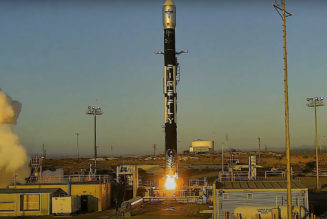
The next generation of game consoles is on the way, but the PlayStation 5 and Xbox Series X / S might not just be bringing better graphics and more advanced technology. The new consoles could also usher in a higher price for games themselves, with the $60 norm that’s been a standard since 2005 potentially going away.
That’s not necessarily a problem, according to Take-Two Interactive CEO Strauss Zelnick, who defended the idea of a next-generation price increase in an interview with Protocol.
“The bottom line is that we haven’t seen a front-line price increase for nearly 15 years, and production costs have gone up 200 to 300 percent. But more to the point since no one really cares what your production costs are, what consumers are able to do with the product has completely changed,” said Zelnick.
“We deliver a much, much bigger game for $60 or $70 than we delivered for $60 10 years ago. The opportunity to spend money online is completely optional, and it’s not a free-to-play title. It’s a complete, incredibly robust experience even if you never spend another penny after your initial purchase.”
Take-Two was one of the first companies to reveal that it would be charging more for its next-generation titles, with the company announcing back in July that NBA 2K21 on the PlayStation 5 and Xbox Series X / S consoles will cost $70, compared to $60 on the current-generation Xbox One and PlayStation 4.
The news was met with considerable backlash from a community of customers who have grown accustomed to the $60 price point over the past decade and a half that it’s been the industry norm. Zelnick later commented that Take-Two would be “announcing pricing on a title by title basis,” but he reiterated the same point: games cost far more to make today than they did when the $60 price point was introduced.
Take-Two has already started to show what some of that title-by-title consideration may look like, with the company planning to offer a free, standalone version of its popular (and lucrative) Grand Theft Auto Online game mode for PlayStation 5 customers next year.
Other companies, like Ubisoft, have elected to punt on the issue, promising free upgrades and no price increase for cross-generation games released this fall — without committing to avoiding further increases down the line as it produces exclusively next-gen titles.
Zelnick isn’t wrong: as Polygon notes, the cost of games has remained almost bizarrely unchanged even as nearly every other facet of the economy (both entertainment-focused and otherwise) has seen prices creep up over time. Adjusting for inflation, a $60 game in 2005 would cost over $80 in 2020 — which means that even a $70 price jump is comparatively cheaper.
And faced with the prospect of next-generation games — which promise to be even bigger and most expensive to produce than today’s current AAA titles — it’s hard to imagine a world where the price of games doesn’t increase in order to make development sustainable.









